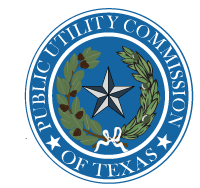The PUC also seeks guidance pertaining to a looming shortfall in a rural telecommunications fund.
________________________________________________
 Analysts expect tens of thousands of new electric vehicles on the road within the next decade — and with them, an influx of electric vehicle charging stations.
Analysts expect tens of thousands of new electric vehicles on the road within the next decade — and with them, an influx of electric vehicle charging stations.
But how should these charging stations be treated for regulatory purposes?
That’s the challenge soon confronting the Public Utility Commission of Texas, the state’s primary utility regulator. In a recent report to the Texas Legislature, the PUC has put forth some ideas.
Released last month, the agency’s “Biennial Agency Report to the 87th Texas Legislature” also includes a funding recommendation relating to its oversight of water utilities and likewise calls for legislative guidance pertaining to a shortfall in a rural telecommunications fund. The 87th Legislature convenes in Austin on Jan. 12.
ELECTRIC VEHICLE CHARGING STATIONS
How the PUC ultimately regulates EV charging stations will affect both the state’s power grid and the experience of individual consumers. Analysts expect tens of thousands of additional electric vehicles on Texas roadways within just a few years.
In Texas, two sorts of entities deliver power to end-use customers. These are electric utilities, which operate as monopolies, and retail electric providers, which operate in the competitive market. But vehicle charging stations should be treated as a new animal altogether, the PUC says in the newly released document.
“The PUCT proposes that the Legislature clarify that the use of an electric vehicle charging station is not a transaction to be governed by existing retail electric policies and that an electric vehicle charging station is not an electric utility or a retail electric provider,” the agency states. “These changes will provide regulatory right-sizing and consistency across the state, in areas inside and outside competition.”
By 2030, electric vehicles could comprise as much as 15 percent of all vehicles on Texas roads, according to analysts. As such, this emerging market highlights “a new need for regulatory clarity on the type of sale that is made by the electric vehicle charging station to the customer charging an electric vehicle,” the PUC states in its report to the legislature. The agency also has opened a project to consider electric vehicle-related questions — Project No. 49125 — and has sought comments from interested parties on a variety of related issues.
PUC SEEKS GUIDANCE
The agency’s legislative report also calls upon lawmakers to provide guidance with regard to a shortfall in the Texas Universal Service Fund, which helps finance telecommunications services in hard-to-reach rural areas. A surcharge on the voice portion of telecommunications services supports the TUSF. Wireless service providers, however, report that a much smaller portion of their service packages include voice service. This, in turn, has led to the funding shortfall.
The PUC report states flatly that in order “to maintain the solvency of the TUSF, either TUSF support must be reduced or collections must be increased” and seeks legislative guidance on how to proceed.
With regard to water utilities, the PUC notes in its report that it has begun making revisions to the Texas Water Code. As such, the agency seeks additional funding to hire attorneys and a paralegal for the task.

